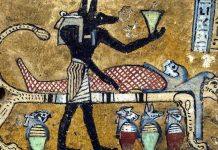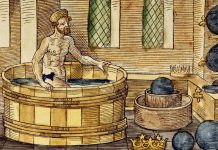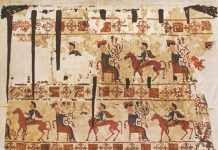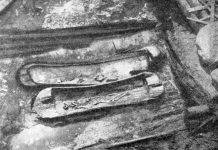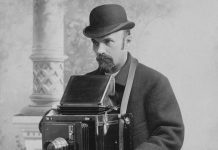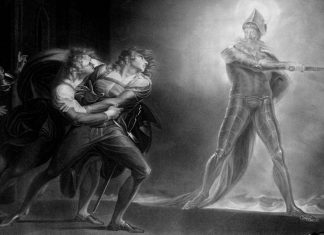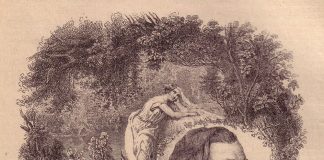When it came time to send the children to the gymnasium, the pharmacist father baptized everyone. So Sasha, having become Orthodox, was able to enter the gymnasium. Studying at the gymnasium did not work out, without graduating from it, he, following the example of his older brother, ran away from home at the age of 15. The “funny thing” is that the parents were not looking for their sons.
When two years later, a starved ragamuffin Sasha wrote a letter from St. Petersburg to his parents, they refused him. east A.Yablonsky, accidentally learning about this story, outlined it in the newspaper “Son of the Fatherland”. The article was read by a certain Konstantin Konstantinovich Roche, a Zhytomyr official. A year ago, he lost his son and decided to take the guy to himself. So Sasha Glikberg got a second homeland. His named father was an educated and cultured man, and therefore the future poet took a lot from him.
In 1899, nineteen-year-old Sasha found himself in a detachment of volunteers who went to Bashkiria to help the hungry. And in the spring of the following year, the guy was drafted into the army, and two more years of his life sank into oblivion.
But Sasha found out how much it is to serve as a soldier. Much later he created the book “Soldier’s Tales”.
Going back to St. Petersburg, he got a job in the Collection Service of the Warsaw Railway. His immediate superior, M.I. Vasilyeva, was five years older than Sasha Cherny. Evil tongues used to say that Sasha was afraid of her all his life. But she was a good person and after a short time they got married. Maria Ivanovna was practical and energetic. It must be assumed that Sasha Glikberg, little adapted to everyday issues, needed just such a life partner. By this time he was already writing satirical poems, sometimes they were published in periodicals.
The role of the manager, as they say now, was taken over by the wife. She went to the editorial offices, took poems and beat out royalties from “literary crocodiles”. Sasha is no good for this.
But his poems, signed with the pseudonym Sasha Cherny, went all over Russia with great success.
Under the influence of his wife, Sasha went to Germany, took two science courses at Heidelberg University and significantly expanded his knowledge of literature.
He returned to St. Petersburg in early 1905, just in time for the first Russian Revolution. The poet’s poems in various opposition publications, such as “The Spirit of Freedom… the whole country aspires to perestroika” and others, in which Sasha denounced tsarism hated by the people and felt like an exponent of people’s thoughts, were in demand by the public. True, because of them, they were closed, but they were immediately revived with a new name. Korney Chukovsky wrote: “Having received the latest issue of a, the reader first of all looked for Sasha Cherny’s poems in it.”
When the new “Satyricon” was born, headed by Arkady Averchenko, its circulation jumped to unthinkable figures in Russia. Of course – Taffy, Sasha Cherny, Knyazev, Rodakov, Warriors and many other feuilletonists and satirists were published there.
N. Gumilev in his “Letters about Russian Poetry” formulated Sasha’s credo: “Sasha Cherny chose the good part – contempt.” However, Sasha himself took Seneca’s words as an epigraph for his satires: “You can’t avoid all this, but you can despise all this.”
The poet got into the very nerve of the epoch, the epoch screamed about itself with his voice. The mask that he put on himself was transparent at other times, and then Sasha’s own face, exhausted by melancholy, shone through it. But he did not recognize half-hearted relationships, dispassionately correct and even.
Amfiteatrov wrote that “such an original, bold, exuberant lyric-humorist, such a darkly sarcastic, comically dull, ridiculously ferocious poetic mask has not appeared in Russian Parnassus since almost time immemorial.”
It was a confession! Fame came to him by itself. Pain and pity for people moved his “poisoned” pen. He found the evil of our life in three Russian troubles: vulgarity, rudeness and stupidity. But most of all he hated fools. According to him, “stupidity turns all values into caricatures: instead of pride, she has arrogance, instead of the public – gregariousness, instead of art – curiosity, instead of love – flirtation, instead of fame – success …”.
The war of 1914 broke out. Alexander Glikberg, as a “spare of the volunteers”, was assigned to the 13th field hospital and sent to the front. Maria Ivanovna went with him as a nurse. Easily vulnerable, the poet fell into a deep depression from everything he saw and experienced. His wife managed to get him transferred to the sanitary unit.
And then, also thanks to the efforts of Private Glikberg’s wife, they were transferred to the medical service of the All-Russian Union of Cities and assigned as an assistant caretaker to the 18th field reserve hospital. He came under the command of the chief physician A.F. Drzhevetsky. This intelligent man could appreciate Glikberg as a man and a poet. Here Sasha Cherny began to write poetry again for the first time during the war. One of the first with the name “Ode” he dedicated to his boss. This was not sycophancy, but a salute.
Sasha Cherny greeted the revolution enthusiastically. He was elected deputy commissioner of the Council of Soldiers’ Deputies of the Northern Front. He accepted the October Revolution with great restraint. At that time Pskov, where the headquarters of the Northern Front was, was occupied by the Germans. And then the centrifugal force of refugee brought Sasha and his wife first to Vilna…
I must say that Sasha’s wife, Maria Ivanovna Vasilyeva, a very wise and educated woman, was a student of philosophy professor A.I. Vvedensky and a relative of the famous merchants Eliseev.
Friends of Maria Ivanovna and Sasha Cherny – Gippius and Merezhkovsky, who tirelessly exposed the atrocities of the Bolsheviks, persuaded the Glikberg family to emigrate. So they ended up in Paris…
Sasha Cherny’s emigrant epic began with the verse “I am poisoned by dark Russian poison…”.
Bunin, Taffy, Kuprin and many others, whom Sasha called “a single Quixotic race,” have already settled in Paris. Even Bunin, who was caustic to his acquaintances, called Sasha Cherny “An Angel of goodness, truth and justice. In the right hand there is a punishing sword, in the right hand there is a blue cambric handkerchief to dry the tears of all the mourners and the hunted.”
Sasha Cherny’s emigrant epic began with the verse “I am poisoned by dark Russian poison…”. Then his poem “Who lives well in emigration” appeared. He tried to answer this question, but the answer could only be disappointing: “It’s good where we are not!”.





